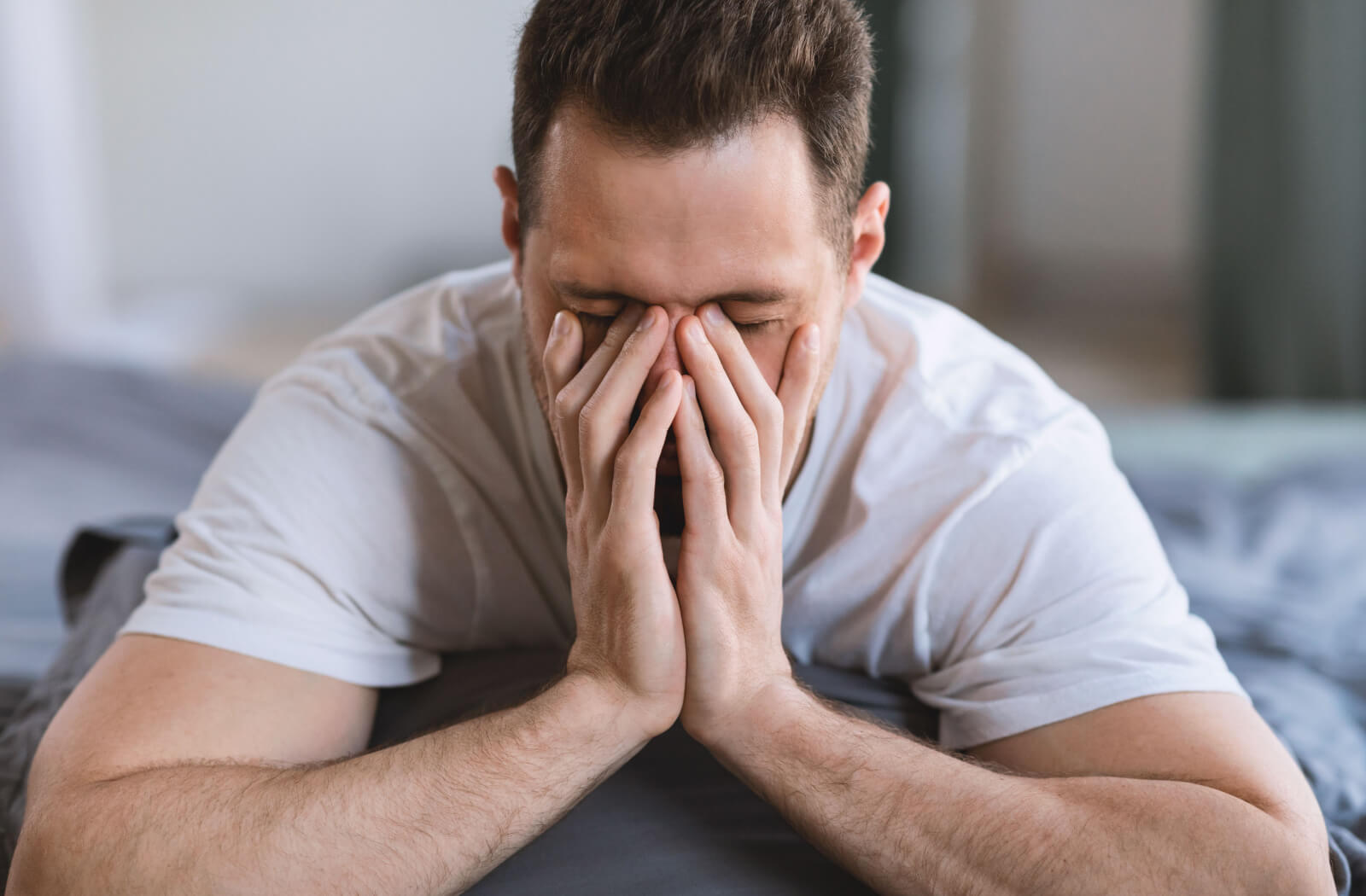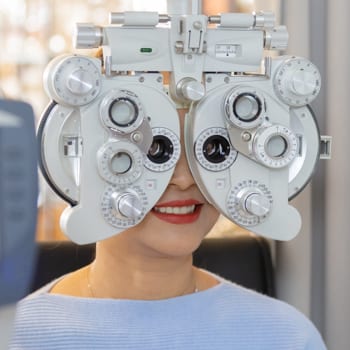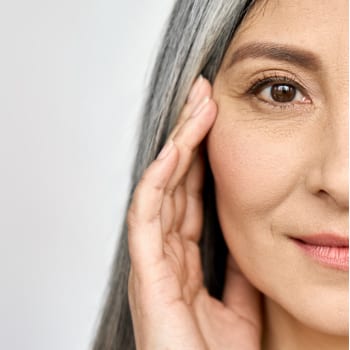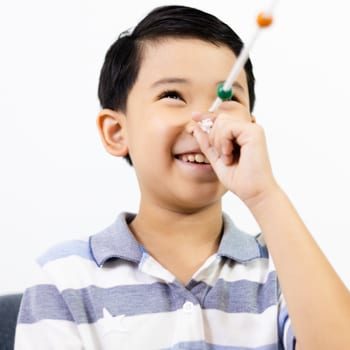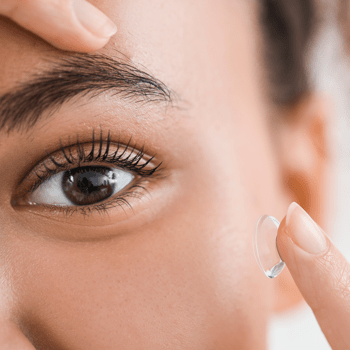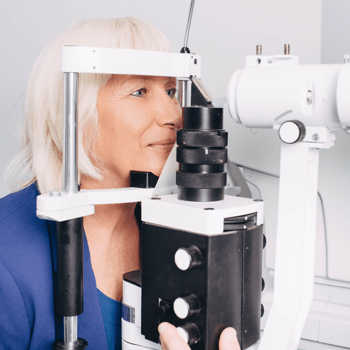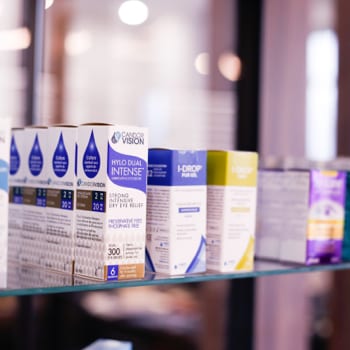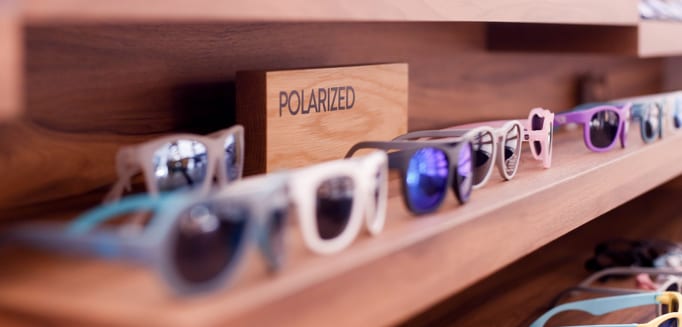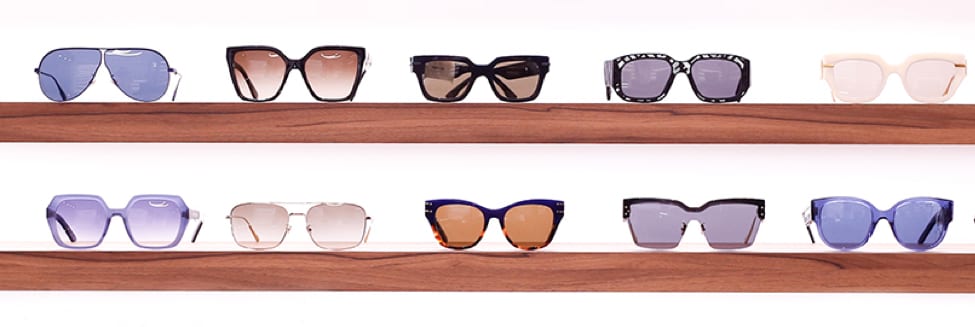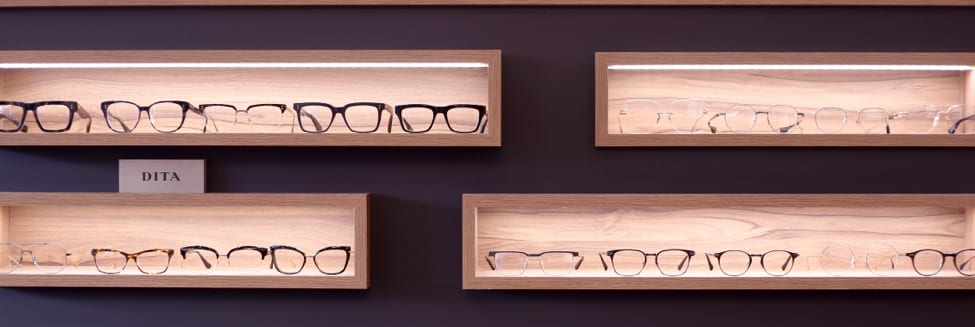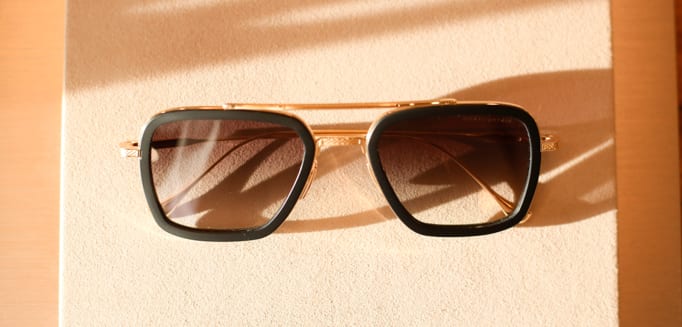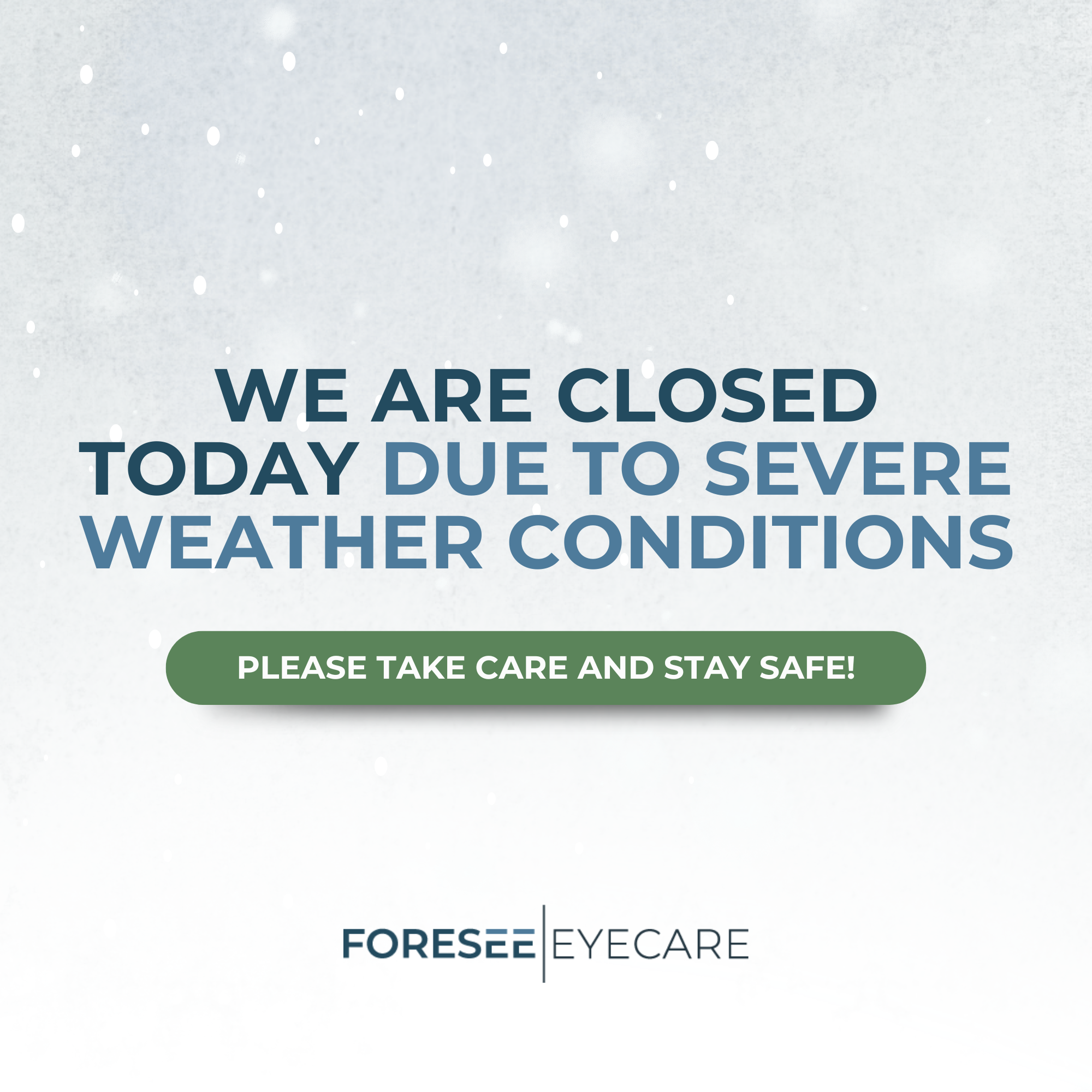Do you often wake up in the morning with red, scratchy, and uncomfortable eyes? Do you have to force your eyelids open through dried mucus built up while you sleep? If yes, then you might be suffering from dry eyes. This is a common condition where your eyes cannot produce enough tears to lubricate the eyes properly or produce tears of poor quality.
When this happens at night, it can disrupt your sleep, leaving you frustrated and unrested. You may wake up with dry eyes because of an underlying health concern, allergies, or environmental factors.
There are various causes of dry eyes, but the good news is that different treatments are available to help alleviate the symptoms. The first step is understanding why your eyes are dry and why it seems to happen more at night.
Causes of Dry Eyes
Dry eye syndrome is a common condition due to a lack of moisture in your eyes. Every time you blink, you’re spreading a layer of tears across your eyes. These tears aren’t just water either, they’re a combination of proteins and nutrients that protect and nourish your eyes. Tears also act as a shield against dust and debris and get released in an attempt to wash away foreign bodies.
Some people experience dry eyes occasionally, which typically fade once the eyes are re-moisturized. Still, others deal with chronic dry eyes that can lead to secondary eye infections.
Various factors can increase your risk of dry eyes, some of which include:
- Age: As we age, our eyes’ ability to produce tears decreases, leading to dry eyes. However, decreased blink rate with increased screentime has increased dry eye symptoms in younger age groups.
- Medications: Certain medications like antihistamines, blood pressure medications, and antidepressants can reduce the amount of tears in your eyes.
- Environmental factors: Exposure to windy or dry weather, air conditioning, or smoke can dry out the eyes. Eye allergies are also a common trigger for dry eyes. Increased use and duration of screentime can also decrease blink rate and tear production leading to dry eyes.
- Diet: A lack of a healthy diet, including vitamin A and omega-3, can affect your tear production.
- Medical conditions: Medical conditions like Sjogren’s syndrome, rheumatoid arthritis, and lupus can affect the tear production of your eyes.
- Sex: Women are more likely to experience dry eyes as well as have more severe symptoms.
Contact lenses can also worsen dry eyes, as the soft lenses might absorb the moisture from your eye’s surface.
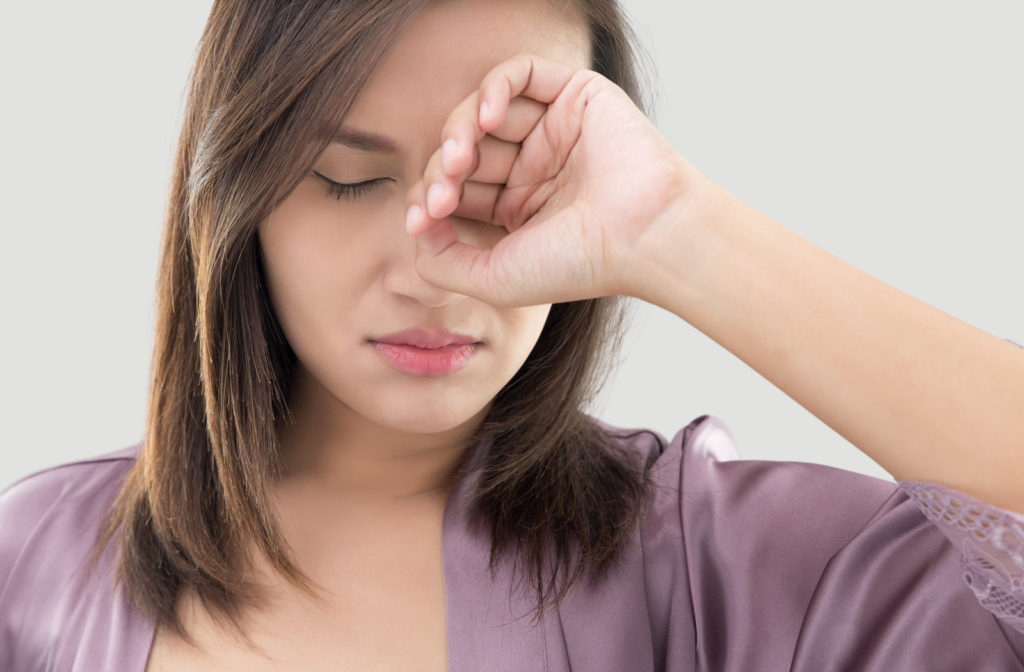
How Sleep Affects Your Dry Eyes
Every day our eyes are exposed to drying conditions such as dust, dry air and wind. We’re also spending more time looking at screens between work and play, with the average Canadian spending about 11 hours each day looking at digital screens. People tend to blink less during periods of intense concentration, such as while working on computers and smartphones.
These drying factors add up, and our eyes may be strained and irritated by the time we go to sleep.
Allergies At Night
Eye allergies can worsen dry eyes, particularly at night. When you have allergies, your eyes produce histamines, which can cause inflammation and itching. This irritation can lead to rubbing or scratching of the eyes, worsening the dryness.
Allergies are triggered when our immune system overreacts to a substance called an allergen, such as pollen, dust mites, or pet dander. Even if you have a mild allergy, sleeping in a room with an allergen present can cause you to wake up with a reaction.
If you’re regularly waking up with dry eyes, a runny nose, and a scratchy throat, you may have a dust mite allergy. Dust mites are microscopic bugs that live in dust and feed on dead skin cells. The average bedroom is ideal for them since soft bedding can trap moisture. Dust mites are harmless, but people with allergies could find their presence uncomfortable.
If you have a pollen allergy, you could collect pollen in your hair and clothes throughout the day, only to release it into your pillow when you go to sleep. The same can be said for pet dander, even if you’re typically not reactive to your pets.
Home Treatments for Waking Up with Dry Eyes
There are various treatments for dry eyes, depending on the cause and severity. To quickly relieve mild dry eye symptoms, optometrists recommend over-the-counter artificial tears or ointments to moisturize the eyes and relieve dryness, burning, and irritation.
A humidifier in your bedroom might be able to add moisture to the air, or you can try wearing a special protective mask while you sleep to help reduce dry eye symptoms. If you have allergies, try closing your windows at night to prevent pollen from entering your bedroom or use “mite-proof” bedding to limit exposure to dust mites.
If a gland blockage is causing your dry eyes, such as from meibomian gland dysfunction (MGD), you might require treatment to remove these blockages. Non-invasive treatments such as IPL and radiofrequency or thermal heat treatments such as MiboFlow are effective at resolving this issue.
IPL and Radiofrequency Treatments
When your meibomian glands become blocked, it prevents the release of crucial oils that keep your tears from evaporating too fast. This results in evaporative dry eye and is responsible for almost 85% of all dry eye cases.
Intense pulsed light (IPL) and radiofrequency (RF) therapy use heat to break down these blockages. Your doctor can do these quick and effective treatments across 3–4 sessions lasting as little as 10 minutes, depending on the severity of your symptoms.
Getting a Good Night’s Rest
Foresee Eyecare uses modern and effective methods to relieve your dry eye symptoms. We offer custom-made solutions for your dry eye needs that can help you get a good night’s sleep.
Don’t let dry eyes ruin your morning. Book an appointment with one of our dry eye experts to learn if remedies such as IPL or RF therapy can work for you.

